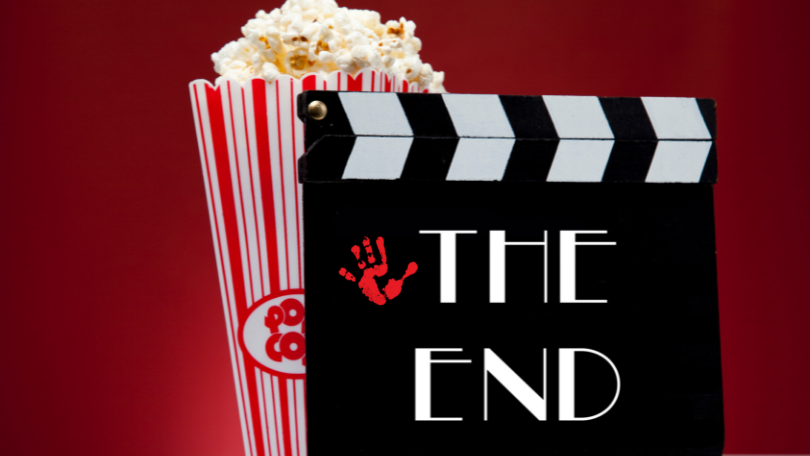The Internet has no shortage of opinions on Will Smith slapping Chris Rock at the Oscars, but I felt compelled to share a perspective from an (at least this) abuse survivor.
The reactions online appear to be polarized into “Team Will” or “Team Chris” and range from urging Chris to press charges and sue to making “five fingers say to the face” jokes. What most concerned me was Jaden, Smith’s son’s, comment “And that’s how we do it” because really—should it be?
What can we learn from Will Smith and Chris Rock situation at the Oscars?
I want to be clear that I am not necessarily labeling Will Smith as an abuser based on this single data point, but rather pointing out his behavior as abusive. Both are unacceptable. More than that, I think there are valuable lessons in this situation for all of us.
I believe in the ability of people to heal and that means believing in their ability to evolve. Evolution is all about growth towards survival. When we think of human evolution, the use of brute force in the caveman days eventually evolved into the use of tools. Similarly, the use of violence eventually evolves into a practice of conflict-resolution and compromise. In other words, humans devolving into violence makes us more likely to kill each other off than if we learn to settle our differences and work together collaboratively.
A compassionate call to accountability for unacceptable behavior
With personal development work, including abuse recovery, we are challenging ourselves to personally evolve over the course of just a lifetime as opposed to collectively evolving over thousands of years. That is both hard work and an imperfect journey.
It is high time we evolve past turning to physical violence. And even so, we can be both compassionate towards Will Smith for seeming to be early on his journey with this (because we are all at some phase of an evolutionary journey), while also holding him accountable for his unacceptable behavior.
This is especially important when it comes to abuse survivorship because 30% of abused kids go on to abuse their own children.1
If the goal is to eradicate abuse as much as possible, we have to approach those who demonstrate abusive behavior with compassion and accountability, because when we approach just with anger, the change we are hoping for becomes extremely unlikely.
The importance of the context of Will Smith’s trigger
Part of having a compassionate stance in this situation is knowing that we do not know the full context of the situation that transpired, as unacceptable as the violence was.
It seems this was not the first Jada joke Chris Rock has made at an awards show and who knows if there is a personal history there. While it certainly seemed inappropriate to make a joke about Jada’s shaved head given the fact that she suffers from alopecia, an autoimmune disease that attacks her hair follicles, we are assuming that Chris Rock was aware of it. Just because we post something on social media, doesn’t mean everyone with busy lives is automatically aware of our going-ons.
Further, Will Smith clearly has some personal frame of reference on using violence to establish masculinity, dominance, and/or solve problems (because behavior like that comes from somewhere).
Will was clearly triggered, and we also don’t know the full contextual history of that trigger. Even though we can deem the behavior unacceptable, we can still have compassion for whatever that context is that Will Smith is being called to outgrow.
The toxic “Show Must Go On” mentality
The biggest area that I think presents an opportunity for us collectively was the immediate reaction to the situation, or lack thereof.
As an abused kid myself, I was always shocked at the lack of intervention when my father would abuse me in public, even though it was no match for how he was at home. People would just continue shopping, exercising, etc, as if it were not happening.
Will Smith walked onto the stage in front of hundreds of people, physically assaulted Chris Rock, casually went back to his seat, and yelled obscenities several times. Security did not appear to approach or remove him at least in the videos I saw. In fact, he appeared to be comforted and hugged by a number of stars during the commercial break.
Meanwhile, Chris Rock had to go on appearing relatively unfazed. On top of this, Will Smith received the highest honor award and was permitted to receive it even after displaying this outlandish behavior.
This situation was a star-studded microcosm of why abuse is still so prevalent in our culture: the toxic “the show must go on” mentality.
We prefer to pretend nothing happened, to not even address or remove the person behaving abusively, to even publicly reward them, all at the expense of the abused party who we expect to play along, act unaffected and keep the show running, all because we find abuse that uncomfortable.
We prioritize our comfort as spectators over the experience of the person actually being abused, even before our very eyes. And that makes us complicit in the problem. That is something we collectively need to take a look at.
The abuse show MUST NOT go on
When we see abusive behavior, we must speak up, even if that person is powerful, rich, and influential.
I see the work Will Smith has to do as not all too different than that which we all collectively should do.
Will Smith will likely be called to increase his tolerance of things he may find triggering, and to learn new mechanisms for dealing with those feelings. We need to learn to increase our own tolerance to the discomfort that things like abusive behavior bring up in us so that we can take better action when we witness it. It is not okay to prioritize our comfort over someone who is being abused. Changing that is how we can move the dial on abuse.
The abuse show must NOT go on!
You can help prevent abuse by learning more about ACEs and the Stop Abuse Campaign mission and advocacy. Take action now and sign up for the newsletter here.
Wishing all involved and you well in your healing journey.
References
1 National Association of Adult Survivors of Child Abuse
Do you know your score?
Discover your ACE score and unlock a new understanding of your life. Take the test and gain insights into how your early experiences shape your well-being. Don't let your past define you – empower yourself with knowledge.

Azure Moyna
Writer and Coach
Azure Moyna is a writer and coach about issues relating to food, body, mental illness, familial dysfunction, societal treatment of overweight people, and the healing journey. Azure is the author of her memoir, Fullness.
